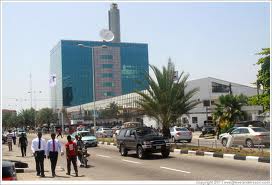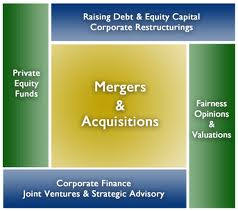Sagamite is a bachelors graduate from one of the UK’s elite universities after an early life in Nigeria. He is an experienced management consultant that has worked with firms in a diverse range of industries both in public and private sector. His experience provides him with a catalogue of versatile and arcane knowledge. His current interests include logical structure of opinions/arguments, entrepreneurship and human psychology. He prides himself on his organic, objective and independent thinking, so the audience should expect a significant number of his articles to be contra-popular belief. He is one of Nigeria’s leading objective-Contrarian thinkers about life’s generally accepted conventional wisdom
One of the challenges that can be observed in the average Nigerian graduate is getting employed. This in part is because of the dearth of opportunities in the market, limited and turbulent economic activities that doo not enable investors and management to be confident to invest in the business and staff on the long run, the lack of funds and a professional and structured entrepreneurship by graduates to provide themselves with employment, and the low quality of graduates in the market to employ, leading to some employers shipping in talent.
Much can be said about each of these drivers but I will focus on how Nigerian graduates can transform themselves to being employable, i.e. an employment asset.
The reality is that the Nigerian environment is a very poor environment for developing and nurturing the skills set and personalities required for the modern professional work environment. Only very few of the graduates are able to overcome this environmental restrictions on their personality outcomes. The few that achieve this do so based on their natural talent and/or their proficiency in seeking and finding the right kind of knowledge from other informal channels.
This leaves companies with only a small pool of highly talented candidates to employ from and affects the quality of products and services remitted to their customers. It is pretty much very difficult to develop a high performance team in Nigeria.
These environmental restrictions on development and nurturing the skills set and personalities required for the modern professional work environment also affects many Nigerian graduates that emigrate to the West. They end up struggling getting the good jobs they desire and which their paper qualifications suggest to them they ‘deserve’.
For graduates that want to learn how to transform themselves from unemployable to employable asset, I will advocate self-development in the following competencies:
1.0 Knowledge and demonstration of high IQ
It is essential any jobseeker strengthen their knowledge of their career line, the industries they want to work in, the types of companies they are applying to and the economy in general.
Employable people will be people that can talk intelligently on key topics of their area. They will be able to back up their arguments with facts and logic instead of being the type that throw beer-parlour arguments. They will have an in-depth knowledge of some of the developments (especially cutting edge or disruptive innovations) that are pertinent to their career-line or the industry of interests, or at least (or as well as) knowing the basics of the work they want to do.
The Nigerian education system will hardly help in achieving these. Graduates need to expand on their knowledge by exploiting the free and accessible resources around them.
Be an ardent news reader/listener, read resources online, subscribe to industry/functional magazines and watch & qualify your utterances. Don’t make claims or arguments that makes you look like an idiot. Many Nigerian graduates do.
When you read or listen to something think through it and synthesis the information. Ask the “why” and “how” questions and use this to acquire more knowledge.
Another serious pointer that relates specifically to Nigerians is that, although you should feel free to have and practice your religion, but refrain from dogmatically stating your religious edicts are the “facts” in environments outside your religious circle. Religion and reason have many difference and gaps. Faith is not evidence of reasoned fact, so don’t use it as your demonstration of intellectual thinking.
I strongly suggest you keep your religious logic to your Church/Mosque except you work for a religious organisation. Most work places are secular, logical and scientific.
2. Emotional intelligence
Getting ahead in the modern work place requires evidence of EQ in addition to the evidence of IQ.
Candidates need to show they are able to read others and work in a team with diverse people. Many Nigerian graduates have a poor mentality based on the environment they grew up in where their fundamental emotional attachment is at a very primitive level; founded on tribalism/religious groups/race/etc. Their thinking, support and sense of achievement are usually oddly tied to these primitive associations.
Many are also very one-dimensional in thinking and can’t incorporate other’s ideas or consider how to win them over.
There are a lot of materials on the net to help with developing the emotional intelligence, e.g. MBTI, Belbin Team roles, Learning Styles, Situational Leadership etc.
3. Professional mannerisms
Mannerisms are also important.
The composure and behaviours demonstrated by people creates an impression in others’ minds.
Two sayings come to mind:
– First impressions count.
– You are what you are perceived to be.
Nigerian graduates need to develop their professional manners and attitudes at work.
I have heard of a
Big 4 secondee from Nigeria to the UK office using the phone to make private international calls to Nigeria and talking loudly in the office while doing it.
The office is not your home and a place to play.
Dress smart or appropriate for the culture, speak eloquently and professionally at all times, do your work to the highest standard within the constraints of the available resources to you and do not take the piss.
4. Adding value & justifying your pay
One of the hidden weaknesses of majority of Nigerian graduates is the mentality.
Many think they should be paid “plenty moni” in Ghana-must-go bags because of some qualifications they have gotten, or because they have heard of what some other guy is earning, without any thought about what value the can add to a company.
Even when offered the job, they come to work every day and go through the paces without any evidence of adding extra-ordinary value and then think their pay needs to be upgraded periodically.
If you cannot give NXm to someone who you cannot see a matching result of their work, why do you expect a shareholder to pay you an amount of money that you cannot justify you are more than worth?
Graduates should be willing to start from, at least, a reasonable base and gain some more knowledge and skills in their career field.
A reasonable base is an amount that is within the market rate and makes it worth your while to leave home (i.e. pay for transport, food, rent etc. and still have some disposable income).
When you have learnt and can demonstrate you are one of the best in the market for your area of work, you can start dreaming of “plenty, plenty moni”.
If you found this helpful, please share with others













Good talk Mr Sagamite
Good old Sagamite.
I wholesomely agree with everything you said most especially the piousness/overly religiousness of most Nigerians. Among my course mates when we get to discuss, you see/hear grown-ups backing up their arguments from religious books in a learning society, evidences that at most impractical in real life situations.
The other day I was not medically sound, a student in Biological Sciences advised I should pray when it was obvious that I needed medical attention. Even the HOD who finished his PhD. from Edinbrug is not even helping matters. One wonder a times if rational/free thinking is strange to Africans.
[…] Source […]